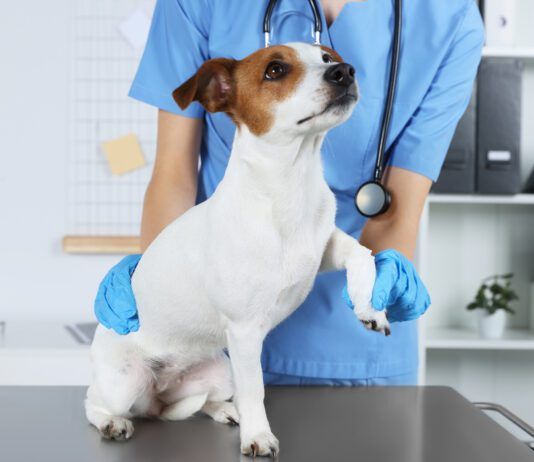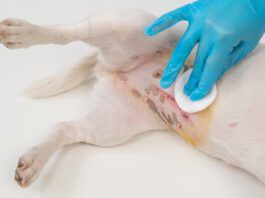How Does a Dog Get Pneumonia?
Pneumonia is inflammation of the lungs, usually caused by infection, resulting in the accumulation of fluid in the air sacs (alveoli) of the lungs.
Why Dogs Sneeze When They Play
When a dog sneezes due to an irritation in her nose, the sneeze is forceful and may include nasal discharge. A social sneeze is small and delicate with no nasal discharge and very little head movement.
Progesterone Test for Dogs and the Female Dog Heat Cycle
Most progesterone tests for dogs are done through the veterinary office, using radioimmunoassay (gold standard) or chemiluminescence immunoassay, but progesterone home test kits are available if needed.
What Is Distemper in Dogs?
Distemper in dogs is caused by paramyxovirus which attacks the respiratory, gastrointestinal, and nervous system. It is spread by sneezing, and shared food and water bowls.
Getting a Dog Fecal Sample for Internal Parasite Testing
A dog fecal sample for internal parasite testing is critical to determining effective treatment for your dog. Stool samples can also provide other vital information about your dog's health.
My Dog Ate a Frog (or Was It a Toad?)
If your dog swallows a toad or frog immediately flush the dogs mouth with running water to reduce poison ingestion and contact your vet or poison control.
How to Find a Vet
Choosing a veterinarian for your dog can be daunting. In addition to location you should consider the vet's knowledge and specialty, costs, and reputation to help you care for your dog through its life.
A Guide to the Top Antibiotics for Dogs
Antibiotics are the best weapon in our medical arsenal for fighting bacterial infections in dogs. Prescribed and given appropriately, antibiotics give our dogs the best chance at recovery from an infection.
Umbilical Hernias in Puppies
If your puppy has an umbilical hernia it looks a lot like an “outie” puppy belly button. When the hole where the umbilical chord attached doesn't close properly it allows fat to poke out and create a bulge.
Why is my dog peeing blood?
There are several conditions that can cause blood in your dog’s urine. Let’s look at the different causes and how each one is diagnosed and treated.
Xylitol Poisoning
Xylitol poisoning can cause hypoglycemia in 10 to 15 minutes. If you think your dog has ingested xylitol contact ASPCA poison control at (888) 426-4435 immediately.
Fear Free Veterinary Care
Does your dog know when you are approaching the veterinary clinic? Sadly, many dogs are nervous, anxious, or just uncomfortable at the vet’s office.
Thankfully...



















